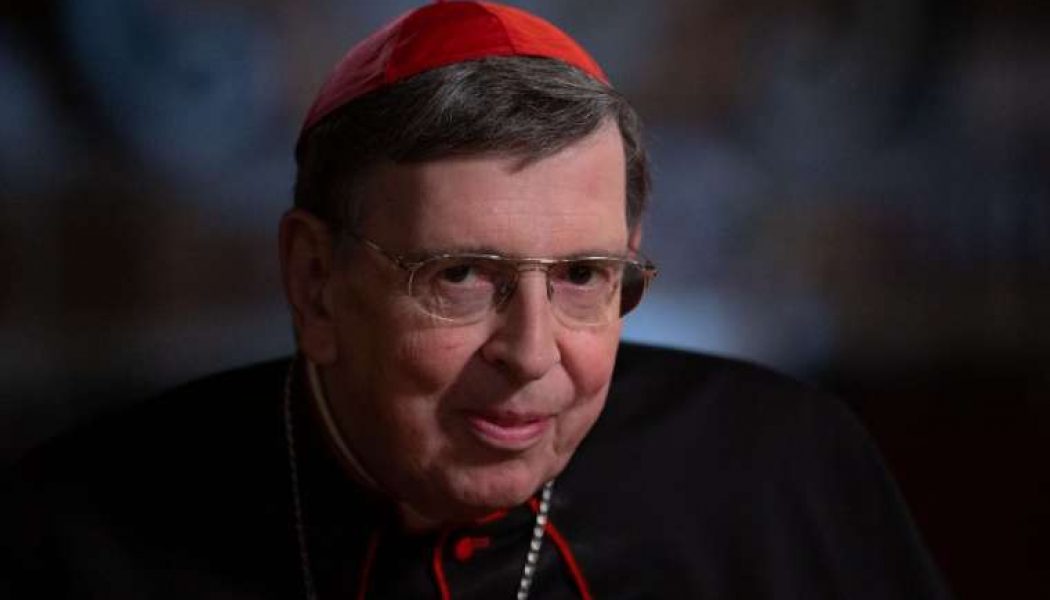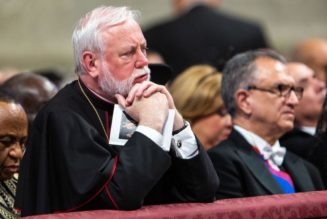
.- The Vatican published Friday a guide with suggestions for Catholic bishops to promote unity with other Christian communities, offering practical advice for how to overcome common challenges to ecumenism.
The 26-page “ecumenical vademecum” was approved by Pope Francis and issued Dec. 4 by the Pontifical Council for Promoting Christian Unity.
The document emphasizes the responsibility of diocesan bishops to promote unity among Christians within their jurisdiction and gives practical suggestions for how this can be achieved.
The vademecum recalls that ecumenical dialogue and inter-religious dialogue have different aims. Dialogue with different religious traditions aims at establishing “good relations and cooperation,” but dialogue with different Christian communities “aims at restoring the unity Christ willed for his Church,” it says.
The guide also addresses questions such as marriage between a Catholic and a non-Catholic Christian, “communicatio in sacris,” and the use of Catholic church property by other Christian communities.
“Communicatio in sacris” means to participate in Holy Communion with a church or Christian community outside one’s own tradition. The document restates Church law, which says that a Catholic bishop may allow a non-Catholic Christian to receive the Eucharist in “exceptional” cases, such as danger of death or “grave necessity,” provided that the person shares the Catholic belief in the Eucharist.
Cardinal Kurt Koch, president of the Pontifical Council for Promoting Christian Unity, said in a press conference Dec. 4 that “the Catholic Church holds that Eucharistic communion has as a prerequisite ecclesial communion.”
This is why, he said, canon 844 of the Code of Canon Law — which indicates the conditions under which a Christian not in full communion with the Catholic Church may receive Holy Communion from a Catholic minister — states that the person must “manifest Catholic faith” in the Eucharist and be properly disposed.
The vademecum notes that a bishop’s judgment about what constitutes a “grave necessity” and “when exceptional sacramental sharing is appropriate” always requires “pastoral discernment,” because it has to do with “the care and the salvation of souls.”
“Sacraments may never be shared out of mere politeness. Prudence must be exercised to avoid causing confusion or giving scandal to the faithful,” the document says.
Cardinal Koch said it was his opinion that the issue of whether there is valid ordination in Christian communities outside the Catholic Church is “the biggest obstacle” to resolving the theological question of intercommunion.
He cited, for example, the fact that the Anglican community has allowed the ordination of women as priests and bishops, which the Catholic Church cannot accept.
“We must work on this situation very hard in the future, but we have not resolved this situation today,” he said.
Cardinal Marc Ouellet, prefect of the Congregation for Bishops, also said that the problem of episcopal ordination was “fundamental, and so it is at the core of ecumenical dialogue.”
Another place where the guide addresses giving scandal is in the use of a Catholic church by another Christian community. The bishop may offer that possibility if the need arises, but he must discern that it “will not cause scandal or confusion to the faithful,” the vademecum says.
In January of this year, a controversy erupted over a Virginia bishop’s decision to allow an Episcopalian diocese to use a Catholic parish for the consecration of an Episcopalian bishop, Susan Haynes.
Bishop Barry Knestout of the Catholic diocese of Richmond defended the decision to allow the Episcopalian Diocese of Southern Virginia to use St. Bede Catholic Church in Williamsburg, citing Vatican II documents on ecumenism. But the location of the event was changed after an internet petition objecting to the event drew national attention.
The new document may help bishops navigate situations like this in the future.
The guide for bishops also addresses what it calls “interchurch marriages,” when a Catholic and a non-Catholic Christian marry. It says these marriages “should not be regarded as problems for they are often a privileged place where the unity of Christians is built. However, pastors cannot be indifferent to the pain of Christian division which is experienced in the context of these families, perhaps more sharply than in any other context.”
The document recommends that bishops meet with and listen to interchurch families in their dioceses, especially during marriage preparation and as couples have children and prepare them to receive the sacraments.
Koch said that the idea for the vademecum came about during the pontifical council’s 2016 plenary meeting, attended by bishops from around the world. He explained that some members of the council asked for a practical document for bishops to learn from and reference on the topic of ecumenism. The guide then took three years to write, in consultation with other curial departments.
“The ministry of the bishop is the ministry for unity,” the cardinal said. “Not just for his own diocese or for the Catholic Church, but unity for the whole of Christians.”
The new document also notes the obligation of lay Catholics to work for unity with other Christians and promotes “practical ecumenism,” which it describes as Christians serving together to promote a common cause or to address injustices, such as human trafficking, mistreatment of immigrants, and attacks on the sanctity of life, among other issues.
“The experience of bishops in many parts of the world is that cooperation between Christian communities in service of the poor is a driving force in promoting the desire for Christian unity,” it says.
“Our common service manifests before the world, therefore, our shared faith, and our witness is more powerful for being united.”
Cardinal Luis Antonio Tagle, prefect of the Vatican’s Congregation for the Evangelization of Peoples, emphasized the importance of Christians being united in order to give authentic witness to people of other religions.
“Lack of unity among followers of Jesus … undermines evangelization and obscures the person of Jesus. The non-Christians are confused: ‘How many Christs are there?’” he said in the press conference.
“The non-Christians are scandalized, really scandalized, when we all claim to be followers of Christ and they see how we are fighting one another,” he continued. “It weakens — the lack of unity and even this almost outright anger toward one another — it weakens evangelization.”
The vademecum stresses “the long history of Christian divisions and the complex nature of the theological and cultural factors that divide Christian communities” and the challenges they present to those engaged in ecumenism, noting that “the obstacles to unity are beyond human strength; they cannot be overcome by our efforts alone.”
“But the death and resurrection of Christ is God’s decisive victory over sin and division, just as it is His victory over injustice and every form of evil. For this reason Christians cannot despair in the face of Christian division, just as they cannot despair in the face of injustice or warfare. Christ has already defeated these evils,” it says.
“The task of the Church,” it continues, “is always to receive the grace of the victory of Christ. The practical recommendation and initiatives suggested in this vademecum are ways in which the Church and, in particular, the bishop can strive to actualise Christ’s victory over Christian division.”
The document highlights prayer, noting that by “praying for unity, we acknowledge that unity is a gift of the Holy Spirit and not something we can achieve through our own efforts.” It also lays out some of the common beliefs among different Christian communities, such as in the saints and martyrs, liturgical feasts, and Sacred Scripture.
It also explains that ecumenism is not based on compromise, “as if unity should be achieved at the expense of truth. On the contrary, the search for unity leads us into a fuller appreciation of God’s revealed truth.”
“The bedrock of ecumenical formation, therefore, is that ‘the Catholic faith must be explained more profoundly and precisely, in such a way and in such terms as our separated brethren can also really understand,’” it states.
Ecumenism also requires the virtue of charity, the guide says, urging Catholics to “avoid polemical presentations of Christian history and theology” and to “seek to emphasize the Christian faith that we share with others and to present the theological differences that divide us with balance and accuracy.”
The guide ends with an appendix of the names and descriptions of different Christian communities with which the Catholic Church conducts bilateral dialogue, as well as a list of the ecumenical groups with which it engages in multilateral dialogue.
Join Our Telegram Group : Salvation & Prosperity




